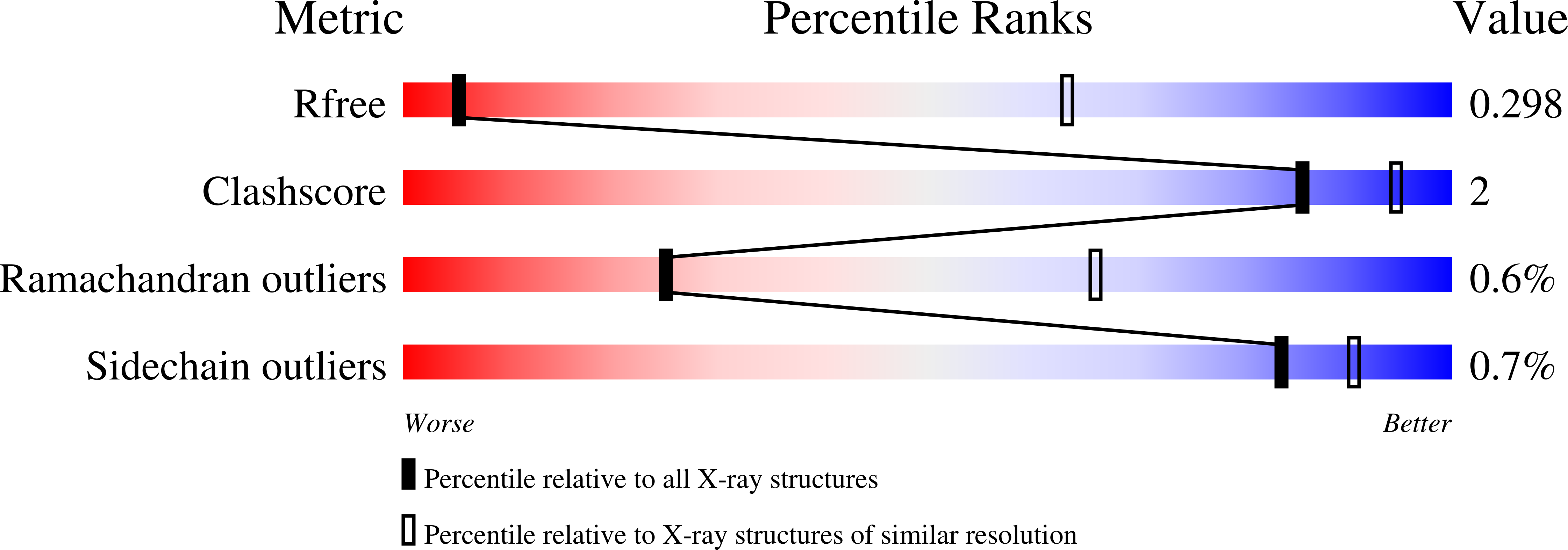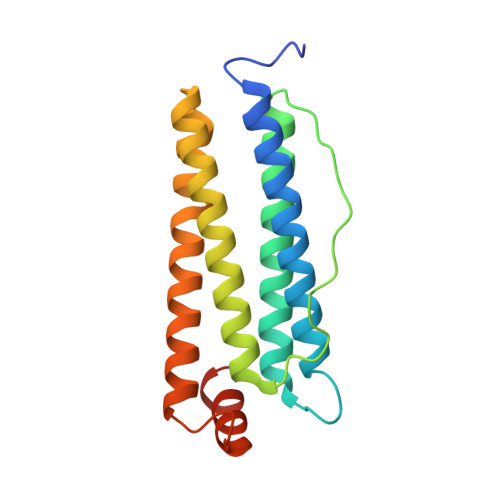Tunable and Cooperative Thermomechanical Properties of Protein-Metal-Organic Frameworks.
Bailey, J.B., Tezcan, F.A.(2020) J Am Chem Soc 142: 17265-17270
- PubMed: 32972136
- DOI: https://doi.org/10.1021/jacs.0c07835
- Primary Citation of Related Structures:
7JGK, 7JGL, 7JGM, 7JGN, 7JGO, 7JGP, 7JGQ - PubMed Abstract:
We recently introduced protein-metal-organic frameworks (protein-MOFs) as chemically designed protein crystals, composed of ferritin nodes that predictably assemble into 3D lattices upon coordination of various metal ions and ditopic, hydroxamate-based linkers. Owing to their unique tripartite construction, protein-MOFs possess extremely sparse lattice connectivity, suggesting that they might display unusual thermomechanical properties. Leveraging the synthetic modularity of ferritin-MOFs, we investigated the temperature-dependent structural dynamics of six distinct frameworks. Our results show that the thermostabilities of ferritin-MOFs can be tuned through the metal component or the presence of crowding agents. Our studies also reveal a framework that undergoes a reversible and isotropic first-order phase transition near-room temperature, corresponding to a 4% volumetric change within 1 °C and a hysteresis window of ∼10 °C. This highly cooperative crystal-to-crystal transformation, which stems from the soft crystallinity of ferritin-MOFs, illustrates the advantage of modular construction strategies in discovering tunable-and unpredictable-material properties.
Organizational Affiliation:
Department of Chemistry and Biochemistry, University of California, San Diego, La Jolla, California 92093, United States.
















